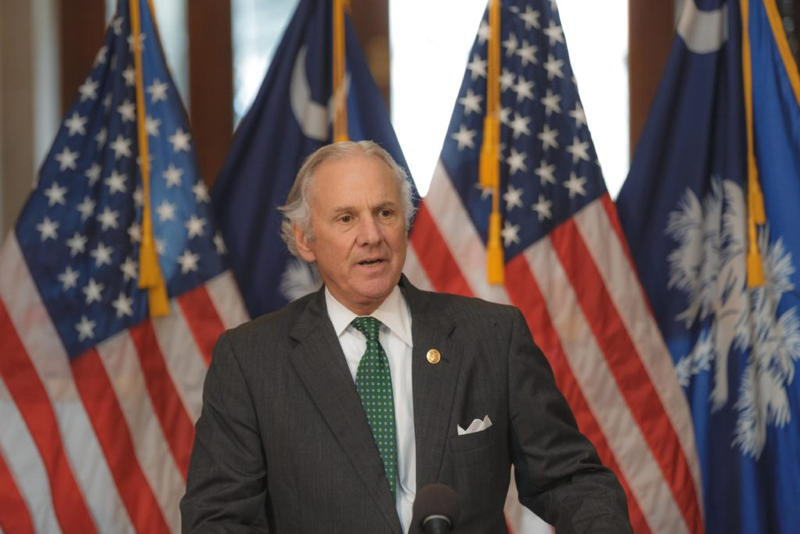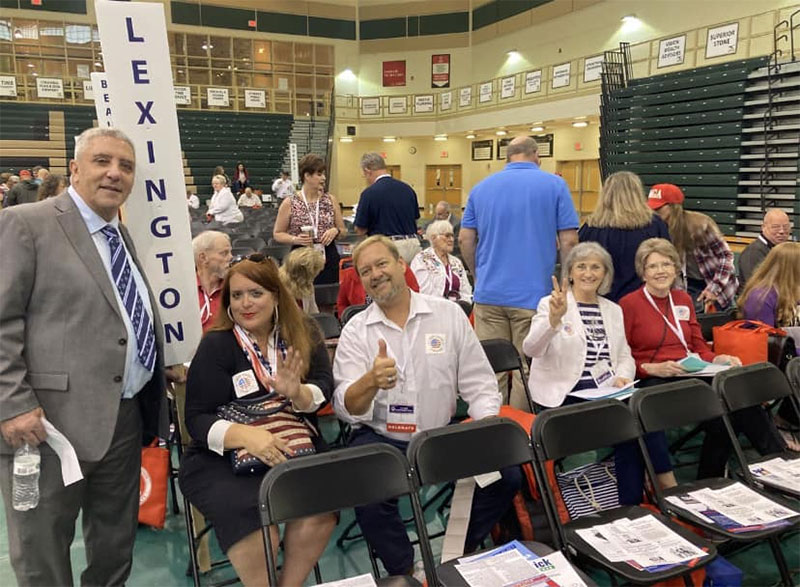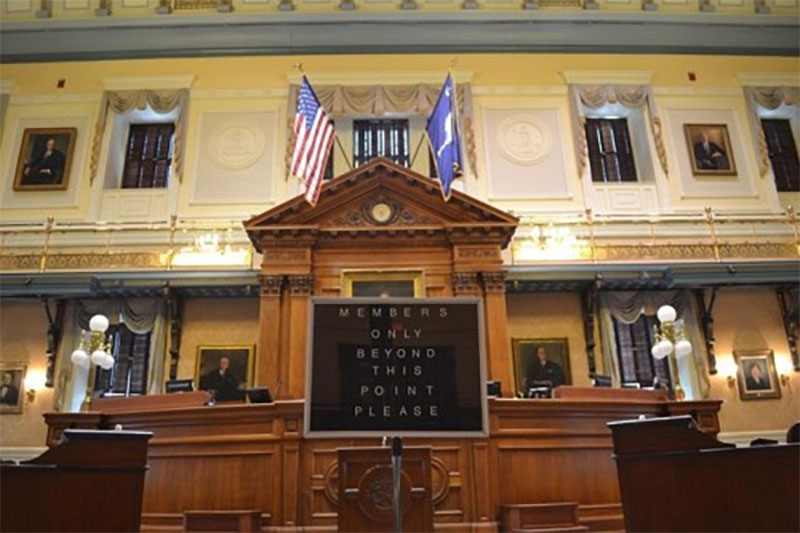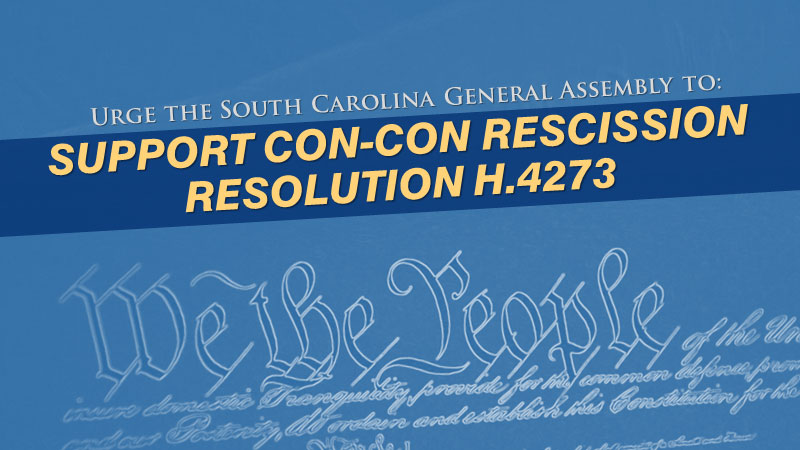- Leibniz and Calhoun: The Christian March of Progress and Postmillennial Truth
- A Seat at the Table, Not Just a Chair in the Room
- The Purpose of your Life -
- Concise Theology in Scripture
- Revisiting the Great Work of Medical Missionary Dr. Anne Livingston in Haiti
- Ukraine War Update September 22, 2025
- The Direction of American Religion
- Have You Heard of The REAL Political Spectrum?
- Bradley Pulls Out of October 7 Spartanburg County Republican Party Forum, Reaffirms Commitment to Voter-First Campaign
- Some Of Our Favorite Things
- U.S. Tomahawk Missiles and Ukraine
- American Religion by the Issues
- Justin Bradley: Conservative Reformer for State Senate
- The Battle for Pokrovsk
- Get US Out! of the USMCA
SAFE Act Explosion: 72% of Red States Now Protect Minors from Gender Transition Procedures
- Details
- By Joshua Arnold - The Washington Stand

As the 2023 state legislative season winds toward a conclusion, it’s time to analyze whether state efforts to protect minors from gender transition procedures were successful. The answer is a hearty “yes.”
Before this year, only four states had passed legislation prohibiting gender transition procedures on minors, which include irreversible removal of healthy organs and permanent sterilization through cross-sex hormones. As of Tuesday, when the Louisiana legislature enacted protections over the governor’s veto, 21 states have protections (one state improved on previously enacted language). Nearly three-quarters (72%) of Republican-controlled state legislatures have passed legislation protecting minors from gender reassignment procedures, and 18 out of 29 (62%) of Republican-controlled legislatures have passed a law this year.
Governor's Vetoes Don't Touch Hundreds of Millions in Earmark Spending
- Details
- By Rick Brundrett - The Nerve

When it came to reining in lawmakers’ spending on their favored local projects for the upcoming fiscal year, Gov. Henry McMaster used a veto butter knife on earmarks totaling more than $709 million.
In his annual written veto message released Tuesday, McMaster vetoed just six out of 515 state budget earmarks approved by lawmakers for the fiscal 2023-24 fiscal year that starts July 1. The six projects totaled $1.5 million – a fraction of 1 percent of the overall $709.4 million in earmarks, The Nerve found in a review of House and Senate earmark lists overwhelmingly approved last week by the Legislature.
MAJOR VICTORY: America First Legal Prevails in Lawsuit to Protect the South Carolina Freedom Caucus’ Right to Free Speech
- Details
- By America First Legal

WASHINGTON, D.C. – Today, America First Legal (AFL) and co-counsel Christopher Mills won our lawsuit to stop establishment politicians from silencing the South Carolina Freedom Caucus. In a forty-page opinion, United States District Court Judge Cameron Currie permanently blocked the enforcement of state statutes that sought to limit the expressive and associational activities of the Freedom Caucus and other “legislative special interest caucuses,” finding them to be “a ban on speech.” The court held that these laws, written to favor the House Democratic Caucus, House Republican Caucus, the Black Caucus, and the Women’s Caucus, violated the Freedom Caucus’s First Amendment and Equal Protection rights.
Lexington County Republican Party censures Senator Katrina Shealy
- Details
- By Press Release

The Lexington County Republican Party (LCRP) censured District 23 Sen. Katrina Shealy during their Monday, June 5 monthly executive committee meeting.
County Chairwoman Pamela Godwin stated, "The LCRP members presented a wide body of evidence and voted to censure Sen. Shealy." She added, "Being pro-life is a bare minimum expectation for Republican legislators in Lexington County and Sen. Shealy has unfortunately failed that test very outwardly."
All legislative seats in South Carolina are up for election in 2024 with the Republican Primary taking place in June.
------------------
Click HERE for original
Under the Hood: Huge Taxpayer Tab, ESG Mandates in Scout Motors Deal
- Details
- By Rick Brundrett - The Nerve

Taxpayers in South Carolina likely will be on the hook for more than the $1 billion already dispersed to help a recently created Volkswagen company build its first electric vehicle plant near Columbia.
On top of that, under a state incentives agreement obtained by The Nerve, Virginia-based Scout Motors Inc., an independent company backed by the Volkswagen Group, which is headquartered in Germany, will have to comply with an ESG-related German law dealing with environmental, human rights and property rights issues.
The Nerve over the past year has reported extensively about the liberal environmental, social and governance movement in South Carolina. In a May 2022 story, for example, the president of an Anderson-based food company expressed concerns that two corporate customers, including a foreign-based company, which he asked The Nerve not to identify, were starting to pressure his business to comply with ESG-related practices.
Finally, SC Joins Other Republican-Led States in Supporting Life
- Details
- By James Spurck, Publisher
Great Way to Celebrate South Carolina's 235th Birthday by Supporting the Unborn

Even Though It Is Not Perfect, It Is A Start And Will Save Lives
The long and fought for S.474 called the "Fetal Heartbeat and Protection from Abortion Act" has passed the South Carolina Senate by a vote of 27-19.
McMaster announced on Twitter after the vote that he is looking forward to "signing this bill into law as soon as possible."
This bill will ban most abortions after detecting early cardiac activity in the unborn child. This can be as early as six weeks. If any physician in South Carolina violates this law, they would have their license revoked in the state. They could even face felony charges, fines, and jail time.
Appeals Court Returns Counterfeit Ballot Case to Lower Court; VoterGA Seeks Recusal to Prevent Obstruction of Ballot Inspection
- Details
- By VoterGA
 ATLANTA -- On December 20, 2022, VoterGA Petitioners in a counterfeit ballot case won a confirmation of standing from the Georgia Supreme Court which forced the Court of Appeals to remand their case back to Superior Court where Petitioners could open discovery and proceed with the inspection of 2020 Fulton County mail-in ballots. Today, Petitioners, who expected Judge Brian Amero to resume the case, announced a motion to recuse newly assigned Judge Robert McBurney for bias.
ATLANTA -- On December 20, 2022, VoterGA Petitioners in a counterfeit ballot case won a confirmation of standing from the Georgia Supreme Court which forced the Court of Appeals to remand their case back to Superior Court where Petitioners could open discovery and proceed with the inspection of 2020 Fulton County mail-in ballots. Today, Petitioners, who expected Judge Brian Amero to resume the case, announced a motion to recuse newly assigned Judge Robert McBurney for bias.
The inspection was delayed for over two years after Judge Brian Amero's false ruling that Petitioners had no standing. Once Amero's ruling was overturned, he transferred the case to McBurney who accepted it in a surprise move that Petitioners claim will obstruct an inspection.
McKissick Approved to Serve Fourth Term as SC GOP Chairman
- Details
- By Terry M. Thacker, Times Examiner Reporter

Three-term South Carolina Republican Party Chairman Drew McKissick was narrowly reelected on the first ballot this past Saturday to serve a fourth term at the helm of a party experiencing great division.
The party's bi-annual convention was held in the gymnasium of River Bluff High School in Lexington. Over 1,000 delegates and alternates from across the state filled the huge gym. Delegates and alternates had already been chosen at the various county GOP conventions, which were held in the several weeks prior to Saturday's convention.
The attendees were given an hour and a half during which to check in. A few minutes before the commencement of the meeting, some alternates gathered at their county check-in tables to find out if they would be promoted to delegate status. If a person selected to serve as a delegate does not show up at the beginning of the convention, an alternate gets to take his or her place.
South Carolina: Constitutional Carry Advances to Floor from Senate Judiciary Committee
- Details
- By NRA-ILA

The Senate Judiciary Committee voted 12-11 to pass S.109, the NRA-backed Constitutional Carry bill, and it has now been sent to the Senate floor for further consideration. This is a huge step toward South Carolina becoming the next state to recognize the fundamental right of law-abiding adults to carry firearms for self-defense without having to navigate burdensome government regulations. Constitutional Carry does not change the criteria for eligibility to obtain a carry permit, nor does it affect previously issued permits.
Senators Feast on Taxpayer-Funded Earmarks for Pricey Projects
- Details
- By Rick Brundrett - The Nerve

Through largely hidden budget earmarks, S.C. senators have proposed a total of more than $314 million for projects next fiscal year mainly in their respective legislative districts – including dozens of $1 million-plus requests, a review by The Nerve found.
The 46-member Senate two years ago changed its rules purportedly to require more disclosure of historically secret taxpayer-funded earmarks, but the chamber hasn’t posted online its latest earmark list, though it passed a $38-billion, fiscal year 2023-24 state budget version on April 19.
The Nerve recently obtained the Senate earmark list under the S.C. Freedom of Information Act. A separate request under the open-records law was made for any House earmarks; House Clerk Charles Reid in a written response said the 124-member chamber has “no document(s) responsive to your request.”
Call for A Prayer of Unity for Coming SCGOP Convention
- Details
- By Press Release

Support South Carolina Con-Con Rescission Resolution H.4273
- Details
- By The John Birch Society

ACT NOW: South Carolina General Assembly are attempting to pass a resolution to rescind every live application to Congress calling for a convention to propose amendments, under Article V of the Constitution, otherwise known as a federal constitutional convention (Con-Con).
House Joint Resolution 4273 (H.4273) is sponsored by Representative Steven Long (R-Spartanburg) and three other representatives. If enacted, it would rescind every live, or extant, application by the General Assembly for an Article V constitutional convention.
Abortions and Planned Parenthood Funded by SC Legislators
- Details
- By Steve Lefemine - Christians for Personhood

Fake* “Republican”-majority (30 R, 16 D) SC Senate voted April 19 to FUND in the SC State Budget: 1) Selected “abortions” in Section 33 and Section 108; and, 2) Planned Parenthood in Section 33.
_________________________________________________
NOTHING WAS EVEN OFFERED AS AN AMENDMENT(S) ON THE SENATE FLOOR APRIL 18 OR APRIL 19 TO DEFUND SELECTED “ABORTIONS” IN SECTION 33 OR SECTION 108; OR TO DEFUND PLANNED PARENTHOOD NOW (!!!) IN SECTION 33.
“The following is a list of the sections in Part IB of the Appropriation Bill, H. 4300, [as] as Reported by the Senate Finance Committee.”
See Provisos 33.12, 33.25, and 108.4 in Part 1B of the State Budget. https://www.scstatehouse.gov/sess125_2023-2024/appropriations2023/sfb23ndx.php
ESG Battles Heating Up Over State Pension Plan
- Details
- By Rick Brundrett - The Nerve

As S.C. lawmakers move closer to banning liberal ESG factors in state pension plan investments, the commission overseeing those funds is reducing at least one global management firm’s control over shareholder votes that come with the billions of public retirement dollars flowing to companies.
But some conservatives are skeptical of the commission’s latest actions.
Michael Hitchcock, the S.C. Retirement System Investment Commission’s (RSIC) chief executive officer, recently told The Nerve that in “response to the criticism over ESG” (environmental, social and governance) policies, New York-based BlackRock Inc., which as of last fiscal year managed more than $10 billion in state pension investments, developed a “Voter’s Choice Program” that will allow the commission to direct how its shareholder proxy votes will be cast “as if we owned the shares directly.”
Policy Council Advocating Title Insurance Reform
- Details
- By Dallas Woodhouse - The Nerve

Bills under consideration in the S.C. Legislature would remove a quirk in state law that unnecessarily regulates the relationship between title insurance agencies and their underwriters.
A recently filed state House bill along with its Senate counterpart would embrace the free-market system and allow the two parties to negotiate commission payments on their own terms.
South Carolina and Connecticut are the only two states that impose a cap on the commission paid to a title examiner (agent) when someone buys title insurance.
“This change will free small business owners (title insurance agencies) to negotiate commissions with big out-of-state insurance companies that do business here,” said real estate lawyer Nathan Galbreath of Greenville, managing partner of Nelson & Galbreath, which has offices statewide and in Atlanta. “The net result will be to immediately put over $45 million into small businesses throughout South Carolina every year.”
Growing Number of States Following Canada’s Lead With Lax Euthanasia Laws
- Details
- By David Kelly - The New American

Canada is a country led by liberals known for open-mindedness and tolerance, which has led them to allow the most permissive rules on euthanasia, or medical assistance in dying (MAID), in the world. Some U.S. states where assisted suicide is legal are now following Canada’s lead, making the practice much easier — even allowing patients suffering from eating disorders to receive prescribed lethal doses to end their lives.
Daily Mailshared that “euthanasia laws in the US are nothing like those of its neighbor to the north. But American acceptance of the practice has been growing for decades despite warnings that legalized suicide is a slippery slope toward a calamitous debasement of human life.”
- Idaho Senator Risch and Colleagues Introduce Legislation to Protect Pro-life Centers Amid Rise in Violence
- Anonymous Texts Target Rep. Magnuson and House Conservatives
- Erroneous Reporting by New Pro-Life Organization called "Equal Protection South Carolina"
- A Letter From SC Conservative Leaders in Support of the SC Freedom Caucus
- What’s Going On?
















